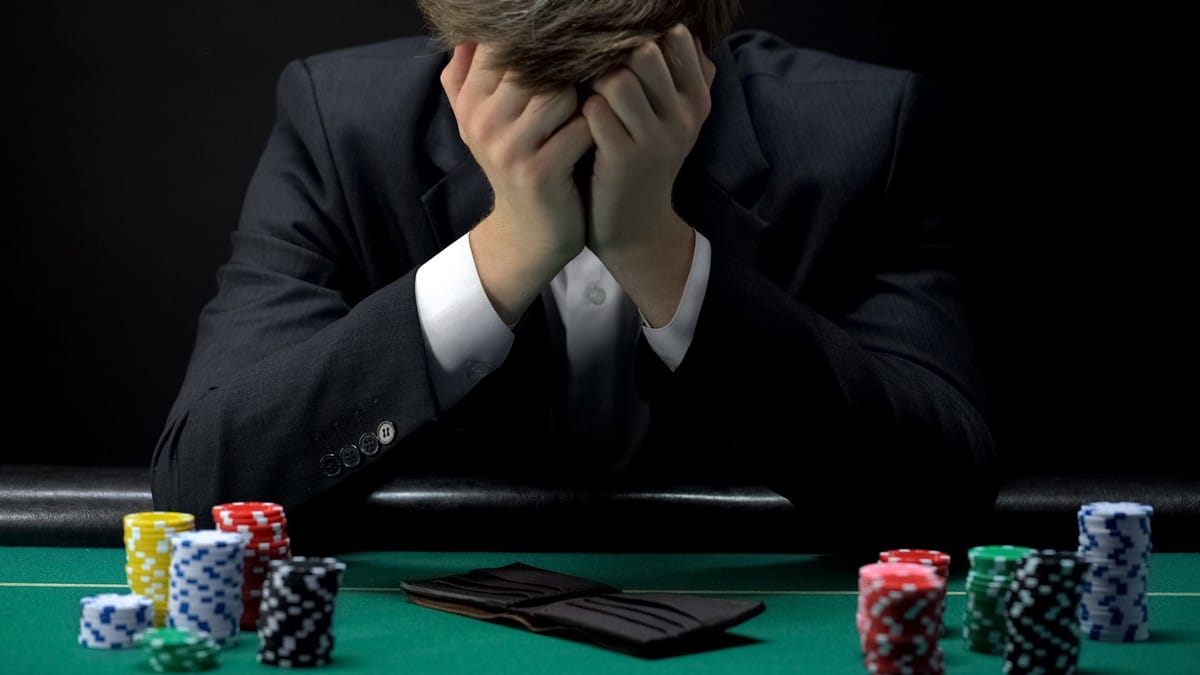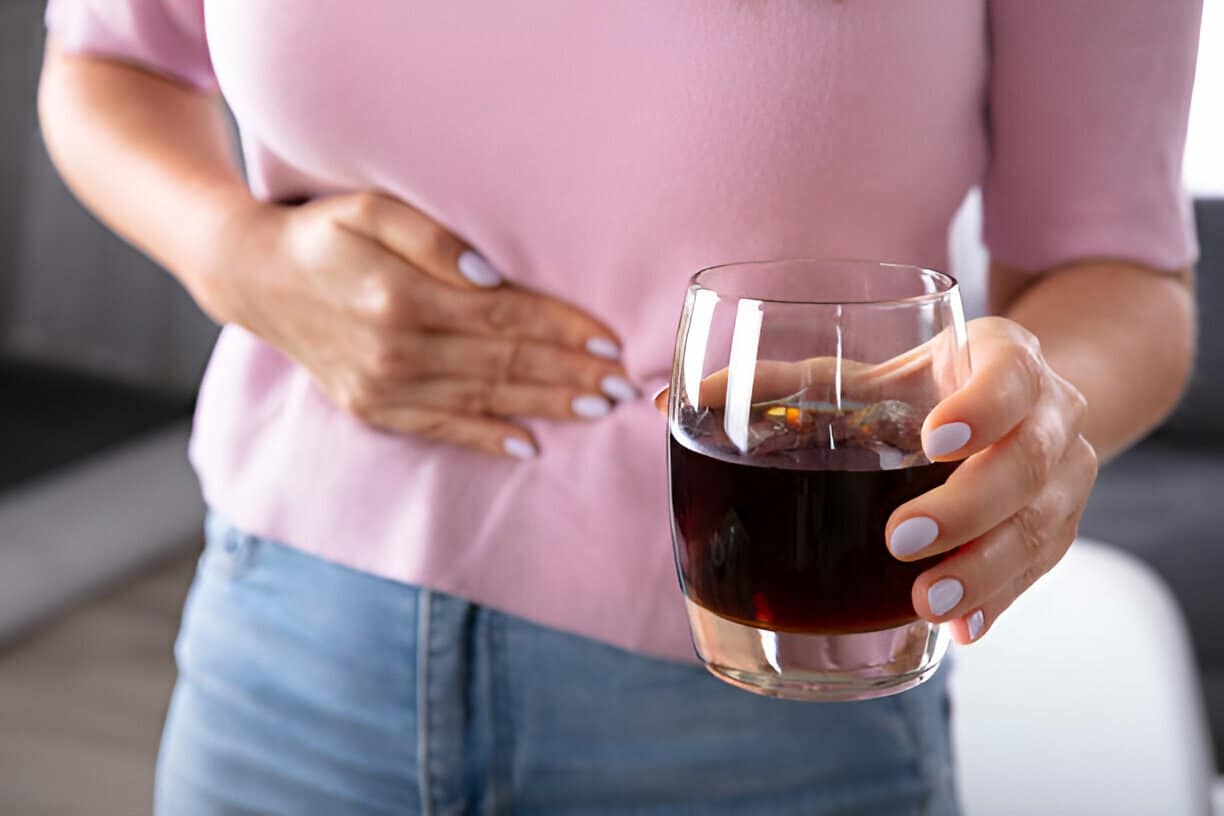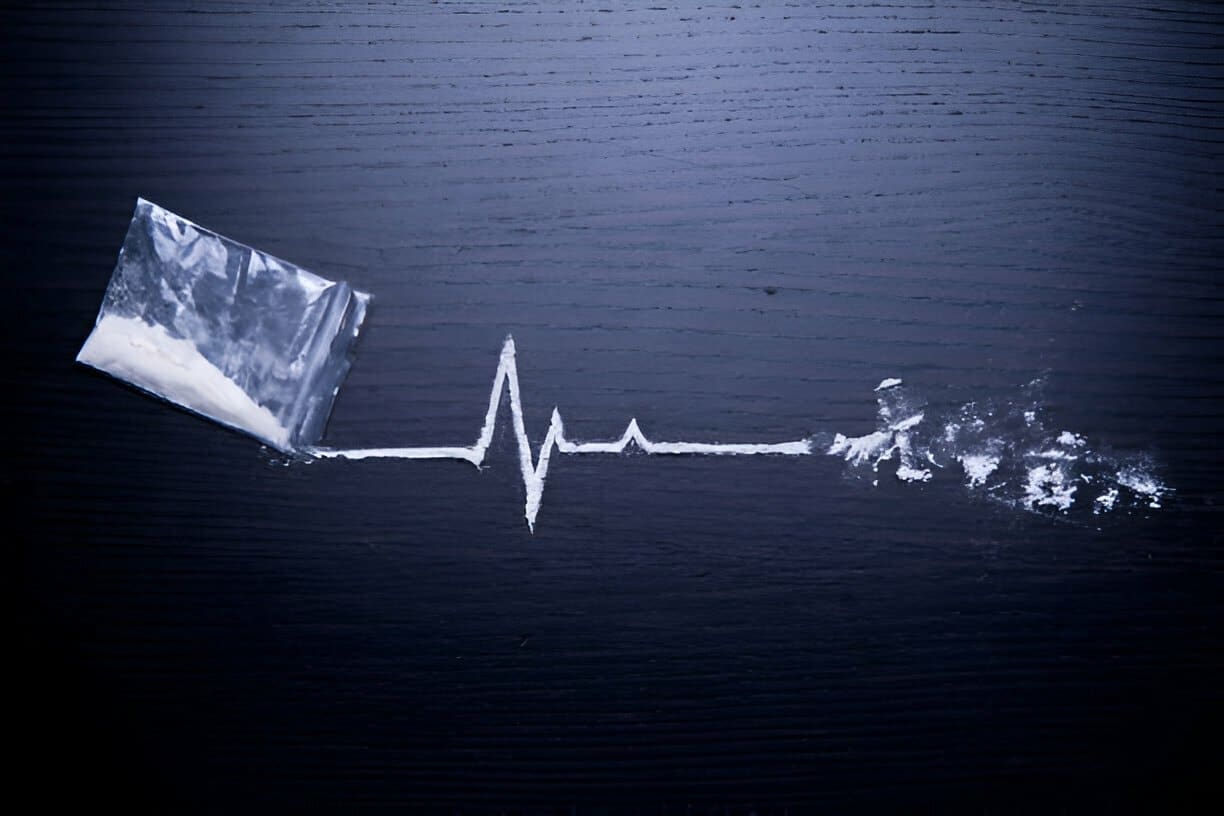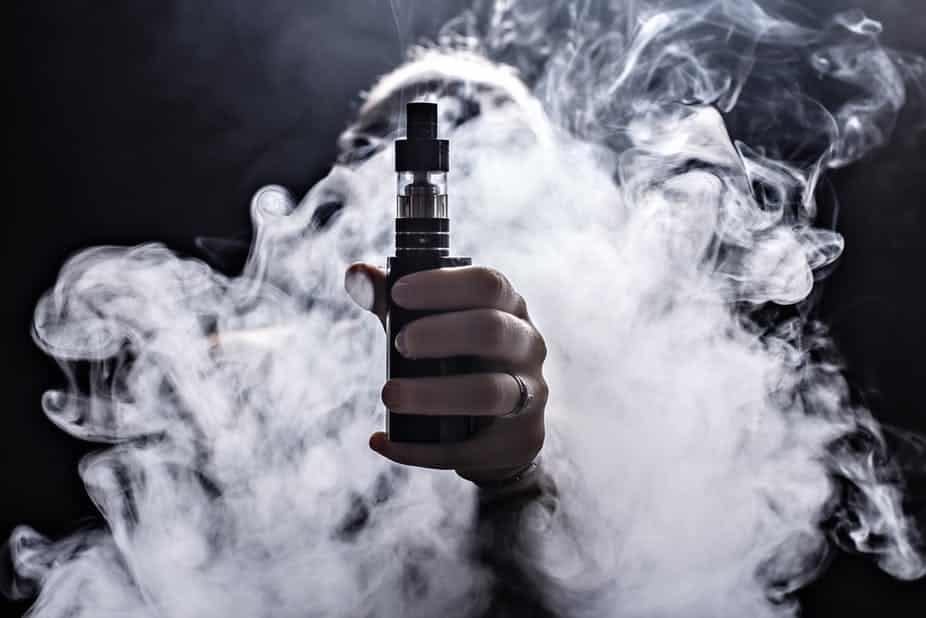
Start exploring drug and alcohol rehabs today. Treatment providers are available to answer your questions.
Behavioural addiction, also known as impulse control disorder process addiction, is a type of addiction in which a person is compelled to engage in a specific behaviour or behaviours regularly, regardless of the potentially harmful effects on their health (physical, emotional, financial or otherwise).
Unlike drug or alcohol addiction, there is no external chemical substance on which a person becomes physically dependent in the case of behavioural addiction. Regardless of the lack of physical dependence, the internal chemical effects (particularly in connection to the brain’s reward system) are incredibly similar to those induced by a psychological addiction to drink or drugs and can be just as damaging.
Addictive behaviours are repetitive patterns of thoughts, feelings, and actions that produce a feeling of pleasure. People who have addictive behaviours often feel compelled to repeat them over and over again, even though doing so leads to problems.
Addiction can be defined as any recurring behaviour that is harmful or has the potential to be harmful to you and that you find difficult or impossible to stop even when you are aware of its destructive potential. People who experience behavioural addictions usually describe their symptoms as irresistible urges to perform the problematic behaviour.
These urges can be strong enough to interfere with everyday life functioning. When the urge arises, the person feels like they must act immediately. The person may try to ignore the urge but eventually loses control and performs the action anyway.
Behavioural addiction can develop when a person engages in certain activities repeatedly without being able to stop themselves. It is an impulse-control disorder marked by recurrent failure to resist impulses leading to maladaptive behaviour patterns.

Gambling addiction is defined as a compulsive disorder characterised by uncontrollable urges to gamble. It is often accompanied by other symptoms such as mood swings, anxiety, depression, insomnia, irritability, anger, and stress. Some gamblers may even suffer from obsessive-compulsive disorder.
There are many different forms of gambling, including sports betting, lottery tickets, bingo, poker, casino games, horse racing, online gaming, etc. However, all forms of gambling share common characteristics.
Although it wasn’t officially designated as an addiction, and the American Psychological Association considered but dismissed the idea of including addictive sexual behaviour in the fifth edition of its Diagnostic and Statistical Manual of Mental Disorders under the heading, “hypersexual behaviour disorder”, it is commonly seen as an addictive behaviour that requires treatment.
Sex addiction is a sexual compulsivity disorder characterised by persistent thoughts, fantasies, urges, and behaviours related to sex. These individuals experience distress or impairment due to their behaviour and have difficulty controlling it. They may feel guilty, ashamed, depressed, anxious, angry, or frustrated.
People suffering from sex addiction may also become dependent upon the addictive activity. This means that they keep performing the same addictive behaviour repeatedly, despite knowing that it’s harmful to themselves and others.
Internet addiction is an impulse control disorder characterised by preoccupation with internet usage. The individual becomes obsessed with using the internet and neglects daily responsibilities. They will spend more time on the computer than necessary and may start missing work or school.
Internet addicts tend to lose interest in other things, like hobbies, family, and friends. Their lives revolve around the internet, and they may feel restless, depressed, and anxious if they cannot access the web.
Shopping addiction is an impulse control disorder characterised by excessive spending, buying, or selling. The individual may feel compelled to buy items they do not need and may go into debt because of this.
In addition to being unable to resist the urge to shop, people with a shopping addiction may also develop unhealthy relationships with credit cards, banks, or stores. They may feel responsible for paying off debts incurred through shopping sprees.
Video games have become one of the most popular forms of entertainment today. Many people enjoy playing video games, although some gamers play excessively. Some people who play video games compulsively find that their gaming habits interfere with their personal life. These individuals often begin to miss classes at school or work and may get into arguments with their parents. They may also skip meals or sleep late to stay up all night playing video games. People who play video games excessively may also become addicted to online gaming.
Plastic surgery is a common practice among women. However, many women undergo unnecessary procedures due to unrealistic expectations about beauty. Some women who undergo plastic surgery may continue to seek out surgeries throughout their lives.
Some women who undergo cosmetic surgery may develop an addiction to the procedure. They may spend hours researching different cosmetic surgery types, reading reviews about surgeons, and making appointments without considering whether they really want the procedure. They may also look forward to having their next procedure done.
Food addiction is a disorder characterised by compulsive eating behaviour that interferes with everyday functioning. The main symptoms of food addiction include:
Exercise addiction is a condition where people exercise too much, which causes them distress. This can be anything from running marathons to going to the gym every day. People suffering from this problem are likely to feel restless, moody, and unhappy if they do not exercise. They will usually try to compensate for these feelings by exercising more.
People who suffer from exercise addiction are likely to experience withdrawal symptoms when they stop exercising. Common signs of withdrawal include:
Love addiction is a psychological disorder that affects a person’s ability to function normally. In love addicts, their need for affection overrides all rational thought. They become obsessed with another person and lose touch with reality. They often get into arguments over trivial matters and have difficulty maintaining healthy relationships.
The most common sign of love addiction is an intense craving for intimacy. When a person suffers from love addiction, they become preoccupied with thoughts about their partner. They feel compelled to talk to them constantly, even though there might be no real reason to do so. If the individual does not receive what they want, they become agitated and frustrated.
The following are some examples of love addiction:
Pornography addiction is a compulsive sexual behaviour pattern characterised by repeated use of pornography, including viewing it online, downloading it, buying it, or masturbating while looking at it. It is also known as “pornography dependence” or “sex addiction”.
Risky behaviour addiction is a type of behavioural addiction that results from excessive risk-taking. It includes activities like:
Risky behaviour addiction can cause severe problems for those who suffer from it. For example, it can lead to:

Studies suggest that genetic factors play a role. People who have a family history of addiction are more likely to develop behavioural addictions than those whose families don’t have such a history.
Other research shows that people who have experienced trauma in childhood are more vulnerable to developing behavioural addictions later on. Trauma can cause emotional dysregulation, which is thought to contribute to the development of addictive behaviours.
Family History: Having a parent or sibling with addiction increases the likelihood of developing a behavioural addiction.
Early Trauma: Experiencing traumatic events during childhood increases the chances of developing a behavioural addiction later on.
Low Self Esteem: Low self-esteem makes it easier for someone to get hooked on a particular type of behaviour.
Poor Social and Communication Skills: Poor communication skills increase the chances of developing a Behavioural addiction.
Social Environment: Living in a home where there is excessive drinking or drug use increases the chance of developing a behavioural addiction in adulthood.
Poor Eating Habits: Poor eating habits increase the odds of developing a behavioural addiction because they make it easy to overeat and gain weight.
Lack of Exercise: Lack of exercise leads to obesity, which in turn contributes to poor eating habits.
The best way to prevent a behavioural addiction is by avoiding certain activities altogether. If you find yourself engaging in these activities, try to stop doing them immediately. It is also helpful to talk about your feelings with friends and loved ones so that you can learn how to deal with difficult situations when they arise.
If you’re already struggling with a behavioural addiction, seek help from a qualified professional. Your doctor might be able to prescribe medication to treat your condition. You could also speak with a psychologist or psychiatrist who specialises in treating behavioural addictions.
Don’t go through the process of recovery alone. Treatment providers can answer your questions. Get in touch with one today.
Call 0800 999 1083 today!
Behavioural Addiction can cause people to experience chemical changes in their brains. This change makes them crave certain substances or activities so much that they feel compelled to repeat them over and over again. To prevent addiction, we must first understand how it occurs.
When a person engages in a particular behaviour, a small number of chemicals called neurotransmitters are released in the brain. When these neurotransmitters bind to receptors, they send signals to the rest of the body.
Neurotransmitters are produced naturally in our bodies, but external factors can alter them, such as drugs, alcohol, smoking, or overeating. If the levels of neurotransmitters in the brain are too high, the person will experience pleasure or relief. But if the levels are low, the person will feel pain or discomfort.
When a person begins engaging in a particular behaviour, the level of neurotransmitters increases. This increase causes the person to crave the behaviour even more. If the person continues to do the behaviour, then the level of neurotransmitters increases further. As a result, the person craves the behaviour even more. This cycle repeats itself until the person stops doing the behaviour. If they do not stop, a behavioural addiction will develop.

There are many different types of behaviours. Some are considered normal, but others are seen as problematic. When a behavioural Addiction develops, certain signs are considered red flags.
Physical symptoms associated with a behavioural addiction include:
Psychological symptoms associated with a behavioural addiction include the following:
Behavioural Addiction can manifest itself in various ways. The following are some of the more common signs of addiction:
Withdrawal symptoms experienced when stopping the addictive behaviour include:
The difference between behavioural addictions and drug addictions is that while both involve compulsive behaviour, one is not necessarily harmful to the individual’s health. For example, people who have a problem with overeating do not usually suffer from physical harm. However, those who have a problem with alcoholism often experience severe physical effects, including cirrhosis of the liver and pancreatitis.
While substance addictions involve the use of illegal drugs, behavioural addictions do not. Substance addictions cause physical dependence and behavioural addictions do so only psychologically.
However, this does not mean that all behavioural addictions are harmless. Some can be extremely dangerous, especially if they involve activities such as gambling, shopping, pornography, and video games.
People who have a behavioural addiction typically exhibit similar neurological characteristics. They tend to crave certain types of rewards and find it difficult to control their behaviour. Their brains release higher levels of dopamine when they perform addictive behaviours.
In contrast, people with substance use disorders feel high levels of pleasure when they consume a substance. This feeling persists even after the substance wears off.
Both groups of people have difficulty controlling their impulses. But people with substance use disorders are generally aware that what they are doing is wrong. They know that they should stop using the substance. People with behavioural addictions, on average, lack insight into how destructive their behaviour is.
A dual diagnosis occurs when an individual suffers from two different disorders simultaneously. A typical example would be a person who struggles with a behavioural addiction and one or more mental health disorders, such as depression.
Dual diagnosis is particularly prevalent among people with behavioural addictions. These people often have coexisting psychiatric conditions such as depression, anxiety, ADHD, borderline personality disorder, post-traumatic stress disorder, and obsessive-compulsive disorder.
The most common type of dual diagnosis is comorbidity, which occurs when two separate illnesses share some symptoms. For instance, a person could suffer from depression and binge eating disorder. Or they could experience problems with impulsivity and compulsive shopping.
Another type of dual diagnosis is overlapping, which happens when two conditions occur together but don’t necessarily share any symptoms. An example of this would be a person suffering from depression and gambling addiction.
There is also a sequential diagnosis, which means one condition develops before another condition. This could happen when a person first develops depression and later becomes addicted to porn.
Dual diagnosis is also associated with poor treatment outcomes. Many experts believe that treating only one condition will leave the other untreated.
Speak to us on 0800 999 1083 to discuss treatment options and to find the best alcohol rehab centre.
People with behavioural addictions tend to spend more money than they make. Many times, they end up going deeper into debt. And if they cannot pay back their debts, they risk losing everything.
It is important to note that these debts aren’t always due to drug and alcohol abuse. Sometimes they are due to spending sprees at restaurants, casinos, bars, or clothing stores.
Some people become so obsessed with their addiction that they neglect their responsibilities. They stop working, paying bills, or even taking care of themselves. As a result, they lose their homes, cars, and other possessions.
Addiction can also affect relationships. People who struggle with addictive disorders tend to isolate themselves from friends and family members. They may also lie to loved ones about how much they use drugs or gamble. If someone suspects you of being involved with a behavioural addiction, try your best not to deny it.
If you suspect yourself of having an addiction, ask for help. You don’t have to do it alone. There are support groups available online and offline. Call us and find out what kind of help is right for you.
The most common consequence of behavioural addiction is depression. Other consequences include anxiety, stress, relationship problems, loss of employment and even suicide attempts.
In addition, there are several health risks associated with behavioural addictions, like excessive consumption of alcohol, drugs, and risky sexual behaviours. These can lead to heart disease, liver damage, and sexually transmitted diseases such as HIV/AIDS.
If you need support dealing with a behavioural addiction, contact us today on 0800 999 1083. We can help you by recommending treatment options.
When we look at the effects of behavioural addiction on relationships, we see that it causes many different issues for partners. Some of these issues include:
Research shows that suicide rates among individuals who suffer from behavioural addictions are higher than those without such mental disorders.
Researchers found that people with a history of addictive behaviours had a fivefold increase in the risk of attempting suicide compared to people without a behavioural addiction.
It’s not clear why this occurs. However, researchers speculate that it could be related to the fact that behavioural addictions often result in feelings of shame and guilt. These feelings may cause people to feel like their lives aren’t worth living.
People with behavioural addictions may also feel helpless when trying to stop engaging in their problematic behaviours. In turn, this makes it harder to deal with difficult emotions.
There are several things you can do if you’re concerned about someone you know having suicidal thoughts. Call SO AND SO ON 0800 999 1083 AND 0800 999 1083.
Behavioural Addiction is a chronic disease characterised by compulsive behaviours resulting in impairment or distress. The most common types of behavioural addictions in teenagers are:
Here are some signs that indicate that a teen might have a problem with a behavioural addiction:
If you suspect that your child or teenager has a behavioural addiction, talk to them about it. You can also ask them about their relationships with friends and family. Are they getting along with others? Do they seem happy or sad? What kinds of problems are they facing?
Don’t go through the process of recovery alone. Treatment providers can answer your questions. Get in touch with one today.
Call 0800 999 1083 today!
There is more than one approach to dealing with a behavioural addiction.
However, it is safe to say that the sooner a problem is recognised and treatment sought, the less likely permanent damage will occur.
If you want to stop doing something and find it difficult or impossible to do so, you are most likely addicted.
Furthermore, if you notice that your behaviour has negative consequences that impact your relationships, income, career, or general life situations and is causing you emotional or physical pain, in that case, it is time to change and get help.

It is essential to understand that not everyone who struggles with a behavioural addiction will show similar symptoms. People with different types of addictions often present very differently. This means that you cannot diagnose someone based solely on the appearance of their symptoms. Instead, you need to consider both the severity of the individual’s symptoms and the frequency of their problematic behaviours. Some common indicators that a loved one has a behavioural addiction include:
If you suspect your loved one has a behavioural problem, you should seek professional help as soon as possible. With professional help, it’s possible to help your loved one identify process addiction behaviours which is the first step into recovery. However, you must be prepared to make some difficult decisions before intervening. For example, you might have to decide whether you want to take away your loved one’s access to money or possessions. You may also have to determine how much information you want to share with them during the intervention.
Once you have decided what you will say, you can start planning the intervention. There are two main ways to stage an intervention:
You can choose which method works best for you. If you decide to go ahead without the help of a counsellor, you will still need to plan carefully.
You will need to gather all the facts about your loved one behavioural addiction. You will then need to determine the right time to intervene. The most effective way to do this is by using a timeline approach. To create this kind of chart, think about when the first signs of trouble appeared. Then, work backwards until you reach the point where the problems began. Finally, write down the date when you intervened.
The next step is to prepare yourself emotionally. It is easy to get upset when you realise that your loved one has a problem. It is important to remain calm and collected throughout the entire process. Remember that you are there to support your loved ones, not judge them.
Finally, you will need to decide how to handle the situation. You could try to persuade your loved one to seek treatment.
If you notice changes in your loved ones’ behaviour, it is crucial to speak with a doctor immediately. This is especially true if you notice that your loved one is acting out of character. For example, if you notice that your partner is spending money recklessly or that your child is stealing things, you should tell someone immediately. In addition, if you see that your loved one is taking too much medication or drinking alcohol excessively, it is essential to report this to a doctor.
There are many resources available to help those affected by a behavioural addiction. These include counselling services, self-help groups, and medical treatments.

A behavioural addiction diagnosis requires a thorough evaluation by a qualified professional. A psychiatrist or psychologist will need to conduct an interview and administer tests to determine whether your loved one suffers from a behavioural addiction.
The first step towards treating addiction is understanding its cause. Once they understand why a particular behaviour is problematic, they’ll be able to design a treatment plan that addresses the root cause of the problem.
After a period of abstinence from addictive substances or behaviours, there are often unpleasant physical symptoms that accompany the process of recovery. These symptoms vary depending on the specific substance or behaviour being abused.
Treatment for behavioural addiction varies depending on the type of addiction involved. Treatment for food addiction typically includes counselling, diet modification, exercise, mindfulness training, cognitive restructuring, and relapse prevention.
For gambling addiction, treatment usually focuses on helping the gambler understand why they continue to gamble and learn ways to manage urges to continue playing. Gamblers are taught strategies to help them resist temptation and stay away from casinos. Cognitive behaviour therapy is used to treat compulsive sexual behaviour.
In addition to individual psychotherapy, group therapy is another effective method for treating behavioural addictions. Group therapy helps participants identify triggers and learn coping skills to deal with process addictions. It also reduces isolation by providing support from peers.
The success rate for treating behavioural addiction depends on the nature of the problem. If the underlying cause is biological, then medication might be helpful. If the cause is psychological, then counselling and self-help methods are most appropriate.
Several medications have proven effective at reducing cravings and decreasing the frequency of compulsive behaviour. They can also help prevent relapse, reducing the likelihood of returning to harmful habits after completing treatment. They can be administered through oral tablets, injections, inhalers, patches, or transdermal applications. These medications are referred to as pharmacological treatments:
Other Medications Also Used in Behavioural Addiction Therapy:
Rehabilitation programs provide a safe environment where people can get the support necessary to stop performing their addictive and destructive behaviours.
Inpatient treatment programs provide 24-hour supervision and help patients develop coping skills to manage their behavioural addiction. They often include counselling sessions, group therapy, family support groups, and recreational activities such as sports, arts and crafts.
Outpatient treatment programs offer fewer hours of supervision but still provide comprehensive services. Patients attend daily group meetings and receive one-on-one counselling. Outpatient programs usually take place in centres located near where patients live.
While medication plays a critical role in treating addictive disorders, other forms of therapy can complement traditional Medication-Assisted Therapies.
Cognitive Behavioural Therapy helps people identify their thoughts, feelings, and behaviours associated with their addictions. This type of therapy focuses on changing how people think about themselves and their problems.
Acceptance and commitment therapy teaches people to accept what they cannot change and commit to making changes that do not harm others. ACT encourages clients to focus on the present moment and live life without judgment.
Mindfulness meditation is a technique that teaches people to pay attention to their surroundings in a detached manner. The goal is to develop an awareness of one’s own inner experience and emotions, rather than focusing on external stimuli.
Psychodynamic therapy explores unconscious conflicts and patterns of behaviour that contribute to emotional distress. People learn to understand these issues so they can make healthier decisions.
Counselling services are designed to help individuals overcome their addictive behaviours. They usually involve weekly sessions for several months. During these sessions, the counsellor will discuss why the client engages in addictive behaviours. Counselling helps clients identify the triggers that cause them to act compulsively.
Self-help groups provide people who suffer from a behavioural addiction with a safe environment to talk about their experiences. Some groups even offer peer support through regular meetings. Others offer a forum where members can ask questions and receive advice on dealing with their addictions.
Speak to us on 0800 999 1083 to discuss treatment options and to find the best alcohol rehab centre.
It may be possible to develop a behavioural addiction with little repercussions in your daily life and initially hide it from loved ones. However, as the addiction grows and deepens, it becomes more challenging to maintain a normal life – whether due to the amount of time given to the behaviour in question, its financial impact, or a variety of other factors. The addict’s primary focus becomes engaging in the behaviour. You will pursue opportunities to engage in it at the expense of other activities, including socialising, spending time with family, work, side projects and hobbies, exercise, and so on.

Addiction relapse prevention is a process that allows addicts to avoid relapsing into old habits. It includes identifying triggers that could cause them to fall back into old ways of thinking and behaving and developing coping strategies to deal with those triggers.
Relapse prevention techniques include:
Family members play a crucial role in recovery from addiction. While family members often feel helpless when dealing with someone who struggles with a behavioural addiction, they can take steps to support the individual’s recovery.
For example, parents can provide unconditional love and support by accepting their loved ones regardless of their actions. Parents can also encourage their children to seek professional help if they notice signs of behavioural addiction.

BACP accredited psychotherapist with 16 years experience working in mental health specialising in psychodynamic person-centred therapies treating those with a range of mental health disorders including anxiety, depression, OCD and Addiction.

Fill in your details and we’ll send you a message via SMS.

No matter where you live, there are drug and alcohol rehab options for you to discover. Treatment providers are waiting to answer your questions. Get started today.

Ever felt that gnawing ache or burning sensation in your gut after a night of drinks? You’re not alone. Stomach pain after drinking is a common complaint, and there are a few reasons why it might happen. Let’s delve into the science behind the discomfort and explore ways to soothe your stomach. The Irritating Truth: … Continued

Cocaine, a stimulant known for its short-lived burst of energy and euphoria, hides a dark side. Behind the initial high lies a dangerous potential for overdose, with severe health consequences and even death. This article delves into the world of cocaine overdose, equipping you with the knowledge to recognize the signs, understand the dangers, and … Continued

Adult smoking habits in the UK refer to how often and in what ways people aged 18 and above use tobacco. This includes everything from smoking cigarettes every day to occasionally lighting up, as well as using other tobacco products. Understanding these habits is important for several reasons: Public Health: Smoking causes many diseases that … Continued

Addiction in the UK is a complex issue that is connected to various aspects of society such as healthcare and law enforcement. It affects people from all backgrounds and has negative impacts on families, communities, and the entire nation. Understanding addiction involves not only looking at the uncontrollable use of substances and repetitive behaviors but … Continued

Don’t go through the process of recovery alone. Treatment providers can answer your questions. Get in touch with one today.
Call 0800 999 1083 today!








